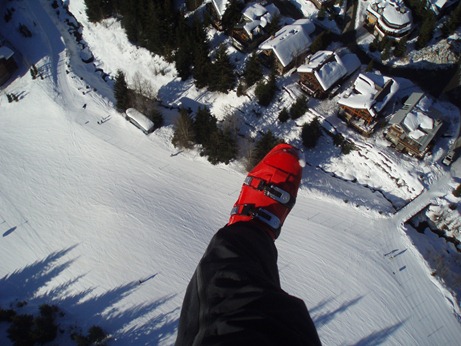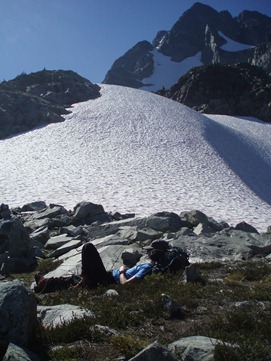SARDay 2010–2011 Wrap Up
I started tracking the time I spend doing SAR-related tasks a year ago today. I was prompted to do so partially because I was watching a friend of mine post every day that he went skiing or mountain biking. The exercise has also helped me to understand how much time SAR takes in my life.
The 2010 – 2011 year was not unusual in the number or types of tasks that the team had to do, nor in the training we did. There are usually between 35 to 45 tasks per year. We train once a week, on Tuesday evening, and usually plan one weekend of training per month. On top of this we add courses such as GSAR, GSTL, or OAR, each of which eats up a three day weekend. In addition there is committee work to run the society; applying for grant money, maintaining the vehicles and equipment, a lot of which happens outside of training hours. Finally there is the community education work where team members present to outdoor groups and schools information on wilderness ethics and survival.
For myself, I’ve spent some additional time on regional issues involving WorkSafe BC’s new Avalanche regulations, and how SAR teams can conform to these. I’ve put work into mapping the team’s wilderness helicopter LZ’s, maintaining the team’s mapping resources, and writing the Avalanche Rescue Response Plan.
This being said, I believe that this year I spent less than the usual number of hours on SAR. The main reason for this is that my partner became pregnant just after the Olympics, and we have since had a new baby boy. In the months leading up to the birth, and the four months since I have reduced the number of SAR-related things I’ve participated in to the bare minimum level where I can be the most useful. I expect my time commitment to pick up this year, what with me becoming a manager, and the related training and course work this entails.
Tracking the hours spent (note those not tracked) I would say that the rough estimate of the hours I spent this year on SAR is 200 hours, with 166 of these on tasks directly related to the team, and about 40 devoted to more peripheral and hard-to-track items (not including this blog). The total amount of person-hours that I came up with for direct tasks and training for the team is 504 hours – this includes all tasks, all direct training and several community education events. Note that no single SAR member could possibly attend all of this training, but some members clearly attend 2/3 of it, and other members (typically the equipment and truck and transportation committee heads) spend quite a bit more time than this.
The hours represent a ballpark figure on the number of person-hours it takes to run a SAR team.
I hope the postings have been useful to readers of the blog. I’ll probably continue tracking SAR-related time in the future. I am going to give a rest to tracking every event the SAR team does for a while, and stick with writing about the more interesting incidents.



Congratulations on finishing the year of posts! I've been lurking in the background – figured I'd post for once.